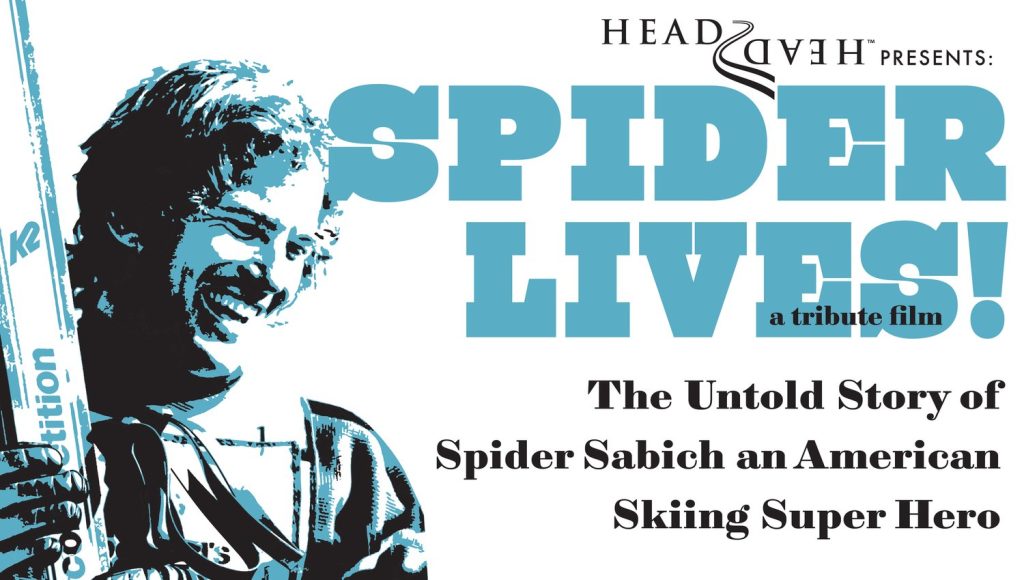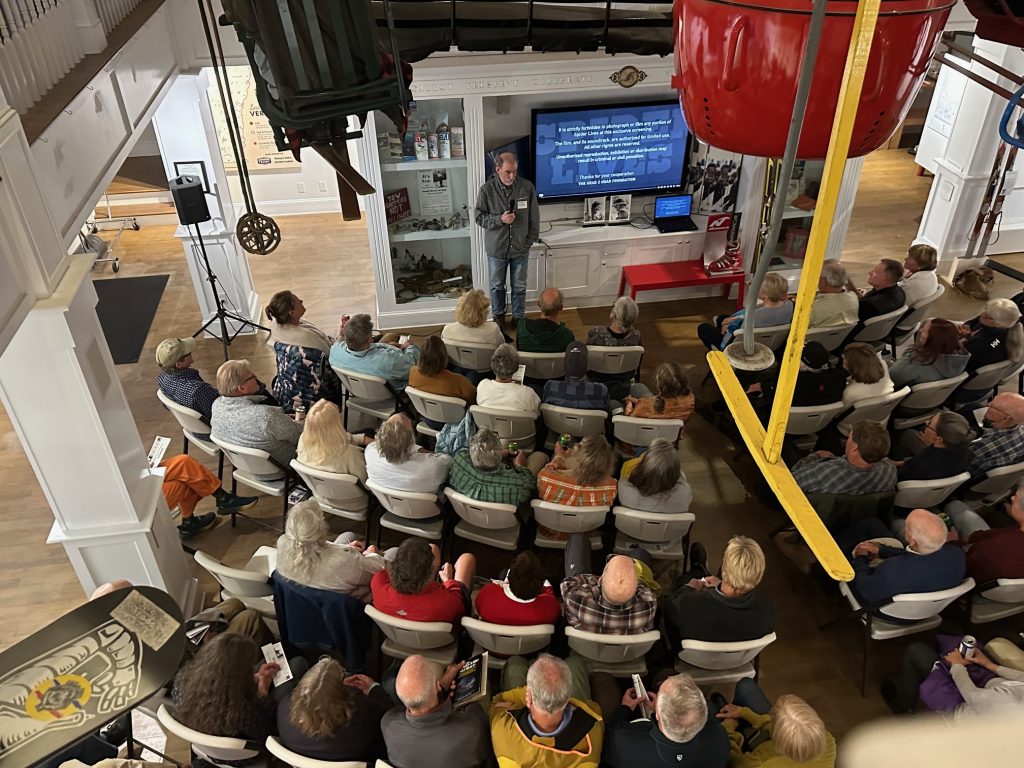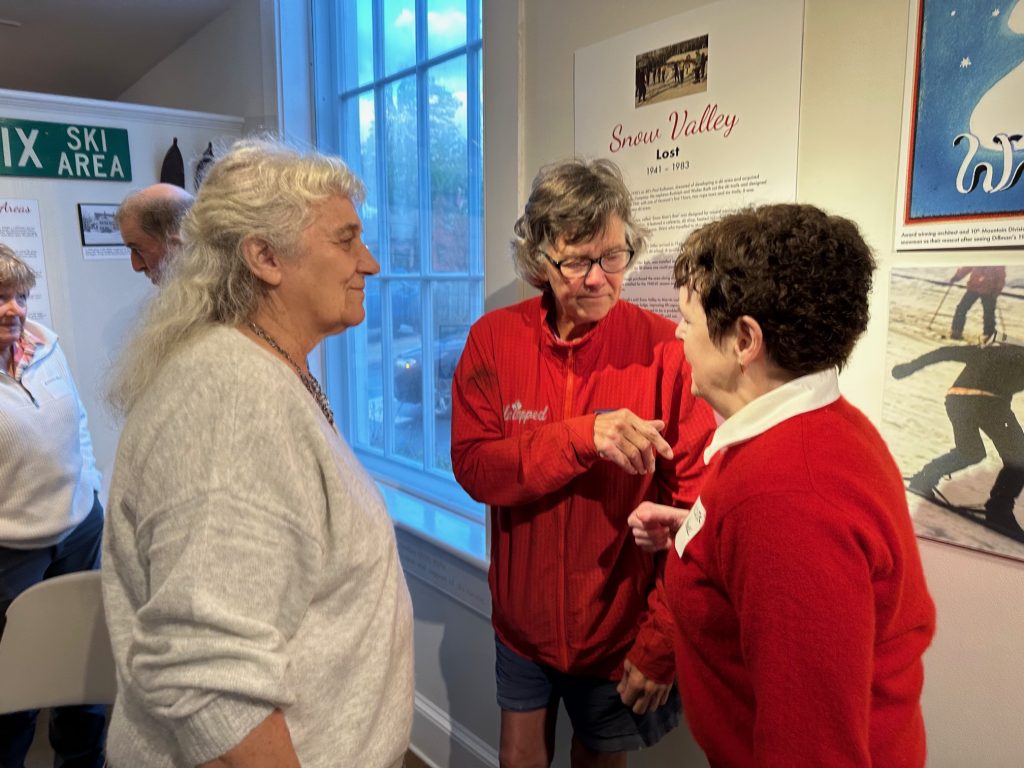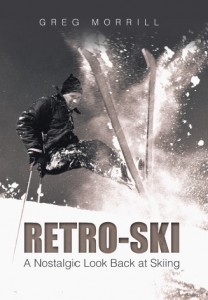I’m back for another season of Retro-Ski nostalgia and history. I hope to both test and trigger your skiing memories!
Throughout my years of doing this column, one topic that has always generated reader reaction is Spider Sabich. Last season I wrote about the relative resurgence of interest in Spider that has resulted in a movie about his life and him being (belatedly) admitted into the U.S. Ski and Snowboard Hall of Fame.
“Spider Lives” is the film produced by former ski racers Christin Cooper and Mark Taché. The Vermont Ski and Snowboard Museum arranged for a showing of the film back on September 28t h and the event was a sellout. Christin and Mark helped arrange Tyler Palmer as the host for the event.

For those not familiar with Tyler Palmer, he hails from my neck-of-the-woods in North Conway, New Hampshire. He made his mark early winning the U.S. Junior Nationals in 1969. On the U.S. Ski Team in 1971 he finished third in the World Cup slalom standings and in 1972 he would finish 9th in slalom at the Sapporo Olympics. He would leave the World Cup circuit for Bob Beattie’s World Pro Skiing Tour in 1972. Racing against the likes of Spider Sabich and Jean Claude Killy, he would have reasonable success on the tour finishing third in the season standings multiple times. During this time Tyler got to know Spider Sabich as a mentor and friend as well as a competitor.
For the showing of “Spider Lives”, Tyler reached out to eastern ski racing friends from his era and many were able to be in attendance. These included the whole Cochran clan, Ron Biedermann, Erica Skinger, and Kiki Cutter (Densmore). Richie Woodworth and Rebel Ryan , who could not attend, contributed stories for the evening. Those were the days of “amateur” ski racing and while European racers sort of winked at that distinction, American racers were severely disadvantaged. The U.S. ski team didn’t have the money to offer much support to the racers so each had to figure a way to afford their sport. U.S. skiers had short racing careers as they had to leave the sport to make a living. As Peter Miller said in his book “The 30,000 Mile Ski Race,” “The American racer is a lonely figure on the international circuit. He is an amateur competing against professionals.”
The U.S. ski team still doesn’t offer much support for today’s racers, but sponsorships, endorsements, and even prize money are now available. Top athletes can now make money ski racing.
This figures into the story of Spider Sabich as documented in the “Spider Lives” film. He left World Cup racing in 1970 after four seasons to enter pro skiing where between sponsorships and prize money he could make a good living! In 1972 his prize money was $50,000 which would be about $360,000 in today’s money. The film contains many interviews with other racers who knew Spider and describe him as a down-to-earth, positive influence on all who knew him. He took ski racing seriously and encouraged others to do likewise.

There were at least 8 people attending the Stowe showing who had personally known Spider. Their comments backed up those in the film. There were entertaining stories and serious stories. Tyler gives Spider credit for helping him manage his mental approach to ski racing more than any technical advice. Erica Skinger of Stowe remembered a time she had a lapse of concentration and skied out of a race. Afterward, Spider came over and gave her a lecture that she was too good a skier to have those kind of lapses. After that story, Marilyn Cochran commented she should have skied worse so Spider would have come over to talk to her!
Bobby Cochran had a story of how Spider was supposed to appear at a U.S. ski team fundraiser in Atlanta, Georgia. At the last minute Spider couldn’t make it so they sent a young Bobby Cochran in his place. Bob seemed to think that there were a few disappointed young women in attendance at the fundraiser.
There is one surprise in the film. Spider actually has a daughter, Missy Greis! She made the trip from Salt Lake City where she founded Publik Coffee Roasters to be at the Vermont screening. Missy’s mother Dede Brinkman and Spider Sabich were long-time friends whose friendship resulted in a daughter. Both had different plans for their futures so this remained a secret until Missy was 20 and her mother told her the whole story.


December 9, 2024 at 1:36 pm
Sounds like an interesting event – and film. Your remarks as to the short careers of amateur skiers in that era hit the mark. The “pro” circuit gave them a chance to earn some money for their hard work and training – and gave the rest of us skiers something to watch when the races were televised. The US men’s team really hit a dry spell back then – between the Billy Kidd’s FIS gold along with a few Tyler Palmer victories – and the initial positive results of the Mahre brothers later in the decade there wasn’t much of a US mens presence in the World Cup. Spider was exciting to watch. By comparison things have changed – witness the lengthy careers of Bode Miller and Lindsey Vonn – lot’s of $$ in endorsements and prize money – you can hang around as long as you want if you’re at the top of your game!